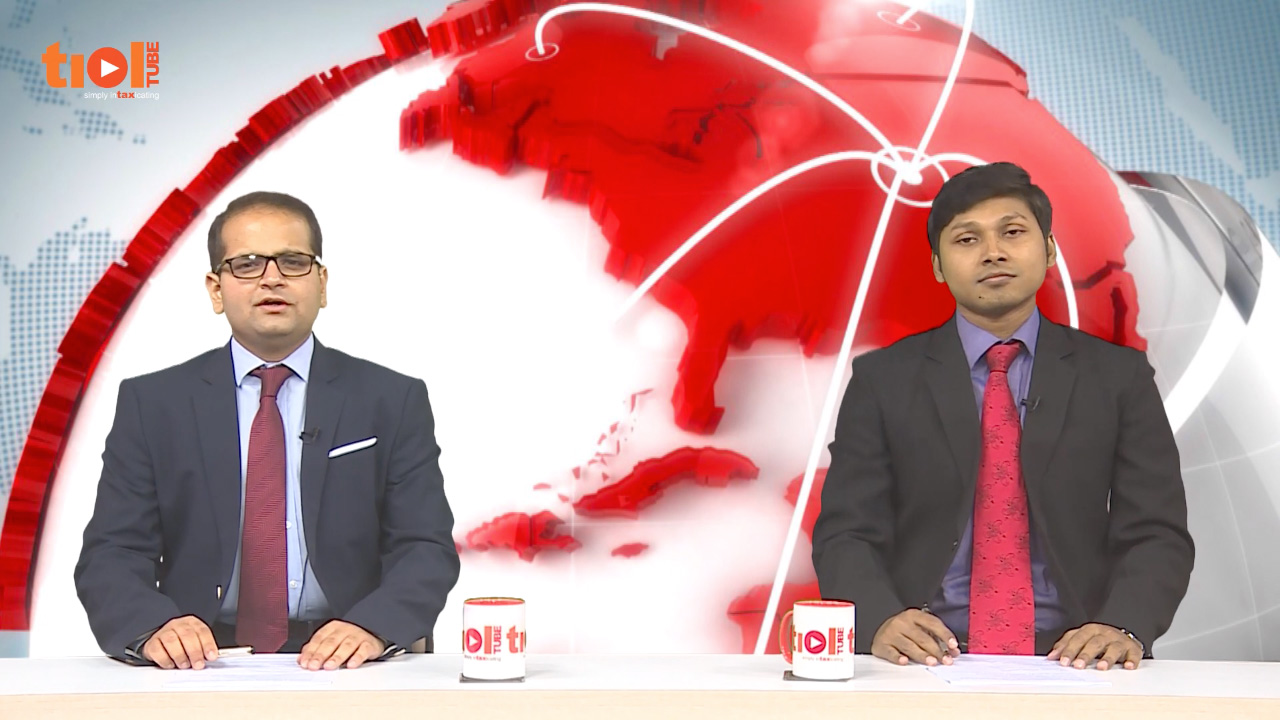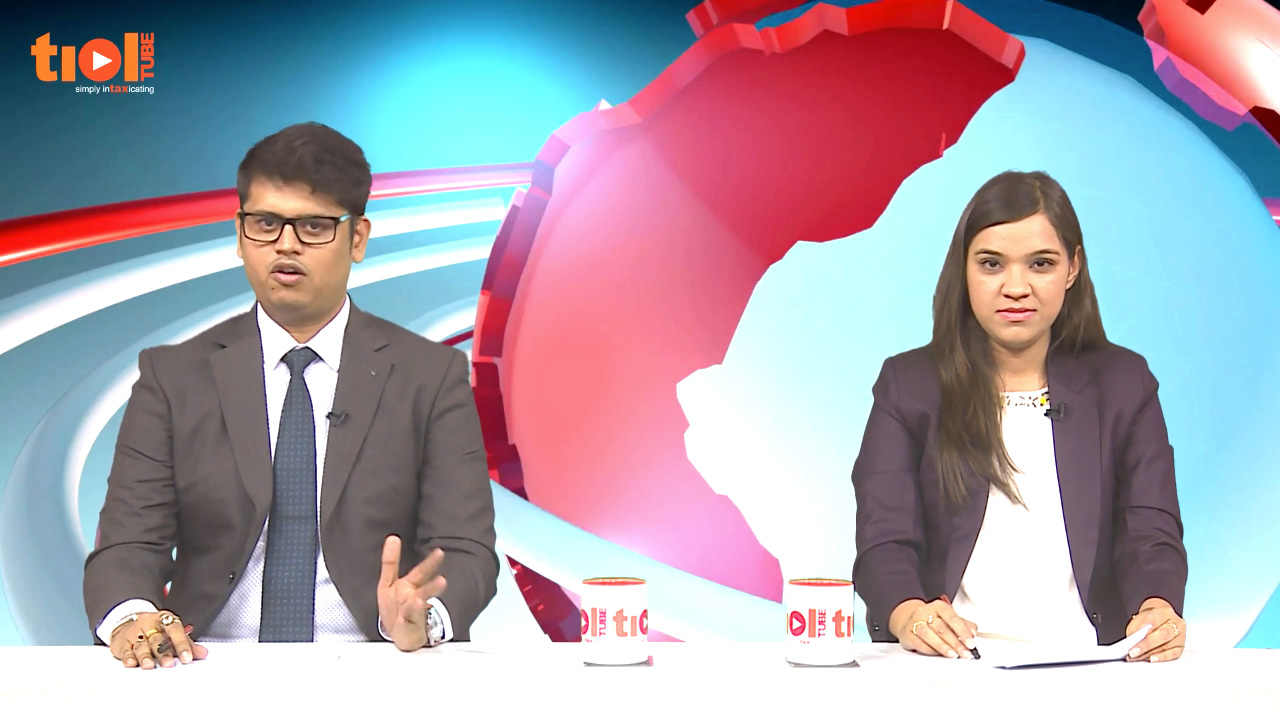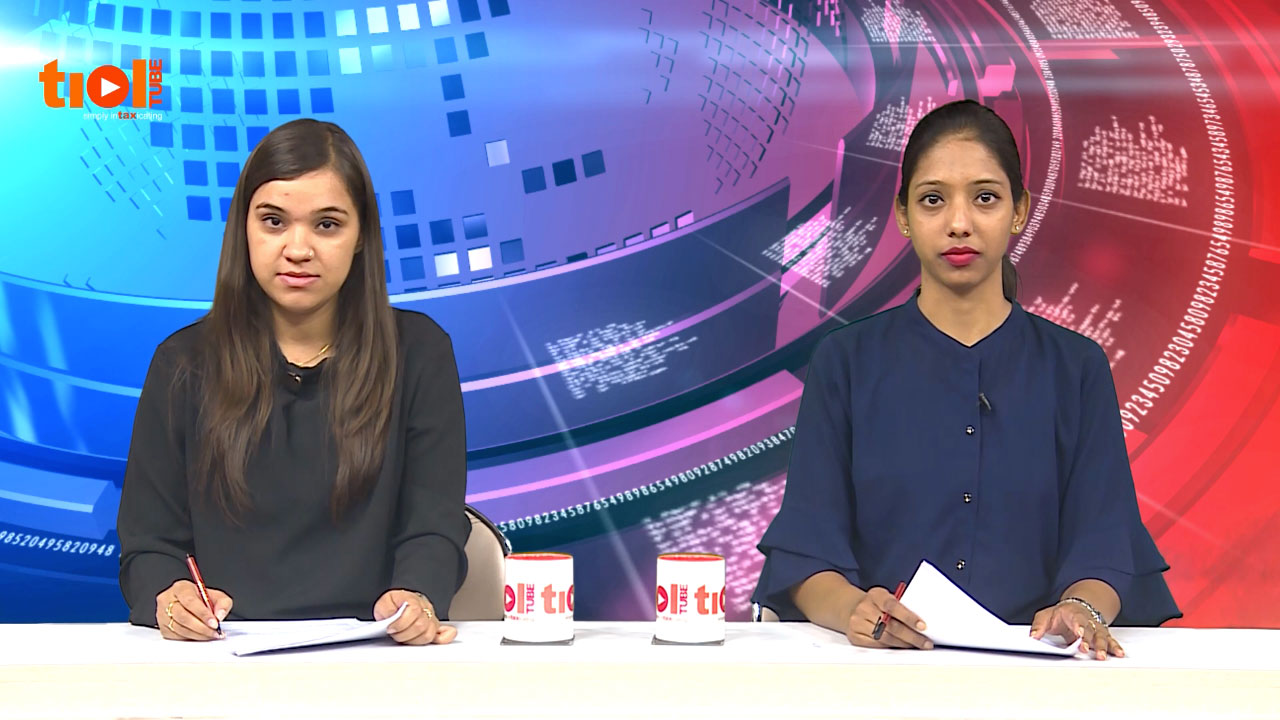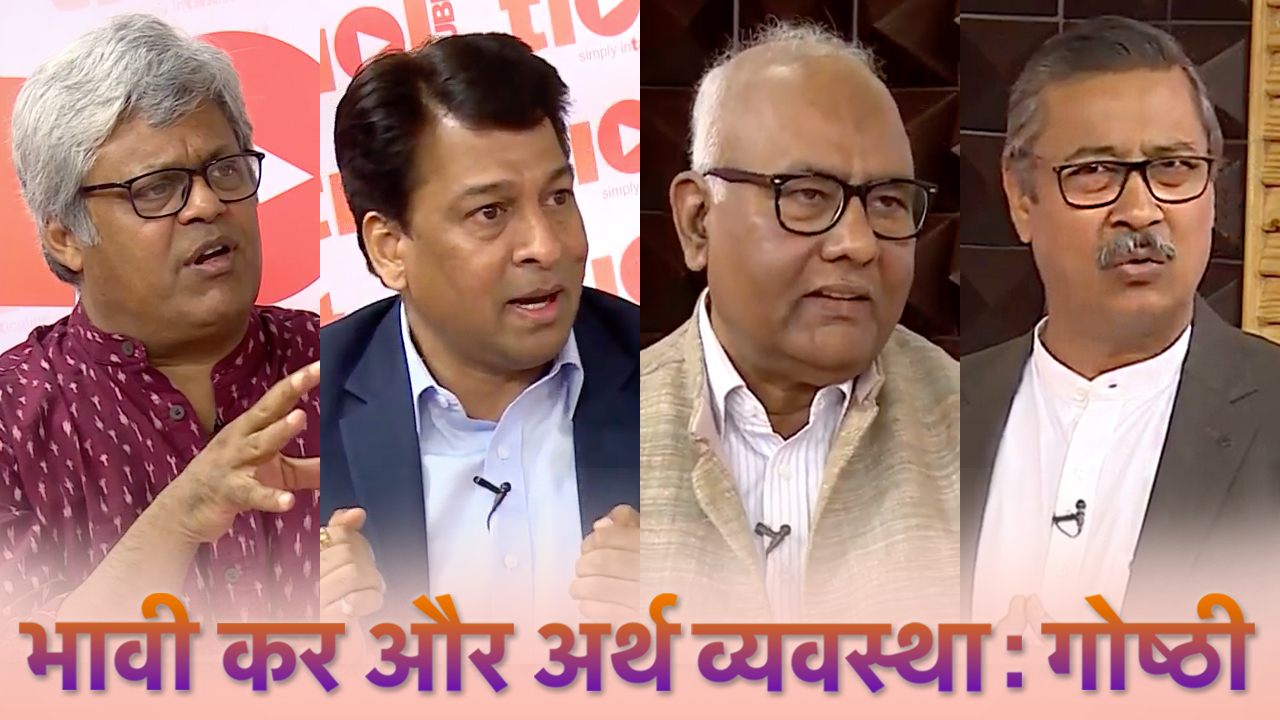|
SERVICE TAX
2019-TIOL-1439-CESTAT-MAD
CGST & CE Vs Siemens Industry Software India Pvt Ltd
ST - The assessee entered into a Distributor Agreement with M/s Siemens Industry Software NV, by virtue of which, apart from providing Consulting Engineering Services, the assessee is also required to promote, market and sub-license software products, promote and market hardware products, of its principals - SCN was issued stating that by virtue of Distributor Agreement the assessee rendered Market Promotion Services to end user customers of its foreign principal in India which fall under the category of Business Auxiliary Service (BAS) - It was also stated that the origin and completion of the above services was only in Indian territory as per which all payments to be made in the local currency, which is contrary to Rule 2 (b) of Export of Service Rules, 2005 - Duty demand was raised under BAS apart from interest u/s 75 and penalty u/s 78 - Such demands were set aside on appeal before the Commr.(A) - Hence the Revenue's appeal.
Held: Provision of service by virtue of the Distributor Agreement to a foreign entity is not disputed - Further, on perusal of SCN and OIO, there is no discussion about any understanding as to the provision of service between the assessee and the end user - Such issue already stands settled in various judgments - Nothing is on record to take a different view: CESTAT
- Revenue's appeal dismissed: CHENNAI CESTAT
2019-TIOL-1438-CESTAT-KOL
Signode India Ltd Vs CCE & ST
ST - The applicant company has transferred the business of industrial packaging to Signode India Limited on 'Going Concern Basis' vide Business Transfer Agreement dated 30.11.2013 and prays for necessary changes in the Appeal records - The issue relates to the question as to whether the activity of packing, unitization and strapping undertaken by assessee is chargeable to service tax under the heading "cargo handling services" under Section 65 (105) (zr) of FA, 1994 - The assessee on the other hand contends that the activity undertaken is taxable only w.e.f. 16.06.2005 under category of 'packaging services' under Section 65 (105 (zzzf) of Finance Act - The same issue of assessee has been decided by Supreme Court in the case of Signode India Limited - 2017-TIOL-126-SC-ST - By respectfully following the judgment of Supreme Court, the impugned order of Commissioner confirming the demand of service under category of cargo handling services is not sustainable and is therefore set aside: CESTAT
- Appeal allowed: KOLKATA CESTAT
2019-TIOL-1437-CESTAT-ALL
Garg Tubes Ltd Vs CCE
ST - The appellant-company is registered under both Service Tax as well as Central Excise - It availed GTA service for transportation of the goods & were to pay service tax on reverse charge basis - The appellant paid such service tax by availing 75% abatement on value of taxable services as per Notfn No 01/2006-ST - Such abatement is available conditional upon Cenvat credit on inputs & capital goods used for providing such service not being availed by the Goods Transport Agency - The Revenue opined that as the GTA service provider had not endorsed the consignment notes to the effect that credit had not been availed by it, the appellant was not entitled for abatement - Duty demand was raised & penalty was imposed on adjudication - On appeal, such findings were upheld by the Commr.(A) - Hence the present appeal.
Held: It is not the Revenue's case that the conditions in Notfn No 01/2006-ST were not fulfilled or that the transporter has availed credit - When the transporter is not registered with the service tax Department, the question of its availing any credit does not arise - Hence the conditions of the Notfn stand satisfied & benefits cannot be denied solely because the consignment notes are not endorsed - As held by the High Court of Gujarat in Commissioner of Service Tax, Ahmedabad V/s Cadila Pharmaceuticals Ltd such requirement of endorsing consignment notes is provided by the CBIC & is not part of the Notfn No 01/2006-ST - Hence the orders passed by the Commr.(A) upholding the demands raised in adjudication warrant being quashed: CESTAT (Para 1,2,4,5)
- Assessee's appeal allowed: ALLAHABAD CESTAT
CENTRAL EXCISE
2019-TIOL-1450-CESTAT-KOL Lafarge India Pvt Ltd Vs CCE & ST
CX - CENVAT - Supplementary invoice issued by the service provider, whether can be considered a prescribed document under Rule 9 of the CCR, 2004 - Credit denied by lower authorities, hence appeal to CESTAT.
Held: At the time of the issue of the original invoices for the activity performed by the service provider, only the value of the service was billed - After becoming aware of the service tax liability, the service provider paid the service tax liability in full along with applicable interest - Supplementary invoice was issued for recovery of such service tax paid by them from the appellant - such supplementary invoice was accompanied by an annexure giving the full details of the original invoices along with the service tax amounts payable on each such invoice - Payment of the service tax along with interest by the service provider by means of challans is not disputed - In view of the Tribunal decision in Diamond Cements - 2016-TIOL-3013-CESTAT-DEL and fortified by the Madras High Court in the case of JSW Steels Ltd. - 2017-TIOL-1509-HC-MAD-CX , impugned order is set aside and appeal is allowed: CESTAT [para 7 to 10]
- Appeal allowed: KOLKATA CESTAT
2019-TIOL-1449-CESTAT-HYD
Lokesh Machines Ltd Vs CC, CE & ST
CX - CENVAT - Appellant has not disputed the amount and has reversed the amount - only question is whether the appellant is also required to pay interest and if so, whether the demand of interest is hit by limitation - Apex Court in the case of TVS Whirlpool Ltd held that the demand of interest has to be made within the normal period of limitation or 5 years, as the case may be, as is applicable to the demand of duty itself - In this case, there is no allegation or evidence that there was any fraud, collusion, wilful misstatement or suppression of facts with an intention to evade payment of interest on the CENVAT credit, therefore, the demand of interest should have been made within one year - since this has not been done, the demand for interest is time barred - demand of interest within one year is confirmed: CESTAT [para 7]
CX - Penalty - Rule 15 of CCR, 2004 - To attract penalty under Rule 15(1) of CENVAT Credit Rules, 2004, the person should have taken or utilized CENVAT Credit wrongly or in contravention of the provisions of the Rule - appellant has, indeed, used the goods on which credit was taken as job worker of their principal manufacturer M/s ALL, on whose name the invoices were issued - prima facie, there is no evidence of taking credit wrongly by the appellant - It is different matter that the appellant has not disputed and has reversed the credit and is also not contesting reversal of CENVAT credit done by them voluntarily - Bench, therefore, finds this is not a case fit for imposition of penalty - penalty set aside: CESTAT [para 9]
- Appeal disposed of: HYDERABAD CESTAT
2019-TIOL-1448-CESTAT-MAD
Larsen And Toubro Ltd Vs CGST & CE
CX - Rule 2(l) of CCR, 2004 - Appellant is aggrieved by the disallowance of CENVAT credit on services which have been received by them for work done in the nature of flooring, fencing, laying of gate post etc. - From the invoices, it is observed that the works undertaken are in the nature of flooring works, fencing, gate post and charges for repairing work etc. - It is very much clear that the works undertaken are in the nature of repair and maintenance work - exclusion clause in the definition of input service excludes only works contract service which is in the nature of construction of civil structure, part thereof or laying of foundation or support structure for capital goods - inclusion part of the definition allows service in the nature of repair and maintenance as well as modernization of factory / premises, therefore, the services availed are in the nature of repair and maintenance / modernization and are eligible for credit - impugned order set aside and appeal allowed: CESTAT [para 5]
- Appeal allowed: CHENNAI CESTAT
2019-TIOL-1447-CESTAT-MAD
Lucas Tvs Ltd Vs CCE
CX - CENVAT - Allegation raised in the SCN is that credit has been availed on outward transport / GTA services whereas, according to the appellants the impugned amount pertains to hiring of packing materials - Original authority held that the services provided by M/s.CHEP India Pvt. Ltd. appeared to have no direct nexus with the manufacture of the final products and that the intended purpose of equipment supplied by M/s CHEP is only for movement of electrical components upto buyer's premises which is not admissible in view of the amended definition of input services in Rule 2(l) of the CCR 2004, w.e.f. 1.4.2011 - as Commissioner(A) upheld this order, assessee in appeal before CESTAT.
Held: From the agreement titled "Equipment Supply Agreement", it is evident that the services provided by M/s CHEP to the appellants were nothing but hiring of specialized packing equipment to enable safe and secure transportation of the goods manufactured by them and not for transportation of the finished goods per se - Appellant has also informed that they had appointed independent transporters to transport goods packed in the equipment supplied by M/s CHEP - conclusions of the lower authorities to the contrary will not sustain - Appeal is, therefore, allowed with consequential benefit: CESTAT [para 5.2, 5.3, 5.4, 6]
- Appeal allowed: CHENNAI CESTAT
2019-TIOL-1446-CESTAT-MAD
CGST & CE Vs Mas Computer Forms
CX - Imported thermal paper classified under CETA 4811 9099 after undergoing the printing of the name of the bank and coding to read the end of statement transacted, is cut and slit and placed in ATMs in rolls - with respect to the impugned goods viz., the thermal rolls, made to a pre-defined shape for being used in ATMs, there may well be some printing of the name of the bank, logo, etc., but that is merely incidental to the final use of the product, which is, spewing out in printed form the details of the transaction entered into by the bank customer - Printing on such ATM rolls is thus only a pre-printing for identification of the bank ATM concerned and is evidently incidental to their primary use - defining aspect for classification of such printed paper is provided in Chapter Note 12 of Chapter 48, as per which when such printing is "not merely incidental to the primary use of the goods", such goods will require to be confined to CETA 49 - in view thereof, impugned goods are correctly classifiable under CETA 4811 9099 attracting duty of 14% from 01.04.2008 to 06.12.2008, 10% from 07.12.2008 to 23.02.2009 and 8% from 24.02.009 to 31.03.2009 plus applicable Education Cess and SHE Cess - classification adopted by assessee under heading 4901 9900 @ Nil rate of duty is incorrect - Order of original authority restored and that of Commissioner(A) set aside - Revenue appeal allowed: CESTAT [para 6 to 9]
- Appeal allowed: CHENNAI CESTAT
2019-TIOL-1436-CESTAT-DEL
Kichha Sugar Company Ltd Vs CGST CC & CE
CX - The assessee is engaged in manufacture of VP Sugar and molasses and are availing credit of duty paid on inputs, capital goods and input services used in manufacture of their final products under Rule 3 of CCR, 2004 - Beside the manufacture of said final products, the products called bagasse & press-mud are also cleared by assessee against the consideration - Resultantly, SCNs were issued in respective appeals raising the demand as recovery of Central Excise Duty on the sale of said bagasse and press-mud in terms of Rule 6(3) (i) and erstwhile Rule 6(3)(a) of CCR r/w Section 11A of CEA, 1944 - The moot question is as to whether the impugned waste invites the payment of excise duty in accordance of Rule 6 (3) of CCR, 2004 - The Apex Court in case of DSCL Sugar Ltd. - 2015-TIOL-240-SC-CX has held that products like bagasse and press-mud do not qualify the definition of Section 2F of CEA and as such are not being a manufacture - These are only an agricultural waste and residue which itself is not the result of any process and in the absence of manufacture, there cannot be any excise duty - The Apex Court further clarified that since it is not a manufacture, Rule 6 of Cenvat Credit Rules shall have no application - Since the main condition for Rule 6 is still, "obligation of a manufacturer or producer of final products", it doesn't extend to by- products released during the process of manufacture of main product that too without involvement of any such activity, which may be called as manufacture - The Adjudicating Authority is therefore opined to have wrongly applied the impugned provision - The amendments seem to have wrongly been interpreted - The order is therefore set aside: CESTAT
- Appeals allowed: DELHI CESTAT
2019-TIOL-1435-CESTAT-AHM
Ratnamani Metals And Tubes Ltd Vs CCE & ST
CX - Appellant is engaged in manufacture of MS/ CS Saw Pipes, Spiral SAW Pipes and SS Seamless/Welded Pipes & Tubes - The appellant concern had five manufacturing locations at different places in the State of Gujarat - Whereas the three Plants located at Chhatral, Indrad Stainless Steel Tubes & Pipes Division (STP Division) and Kutch Division were fixed Plant the plants located at Jamnagar and Dehgam were mobile Plants - Further it is also a fact that the appellant received the orders and it was there marketing department which was providing the code to each order and was allotting the order to the respective plant - The principal manufacturer as well as job worker both are merely Division of RTML - It is only a case where one division allotted the work to another - The contention of revenue that it seemed to be paper transaction would have been correct, if no manufacturing activity would have been taken place at the job worker's end or one party out of the principal manufacturer or job worker would have been for the namesake without any existence of factory or there would have been no manufacture of goods - However both the Principal manufacturer and the job worker owned complete manufacturing set up - It is also not disputed that the raw material on account of principal manufacturer reached to the job worker and was used for the manufacture of final product on their account - The demand of cenvat on the one hand from principal manufacturer on raw material which reached to the job worker and demand of duty from the job worker on finished goods manufactured from such raw material itself proves that the raw material was used for the intended purpose only - Thus in such case the cenvat credit to the principal manufacturer i.e SP and SSTP Division cannot be denied - One of the reason for demanding duty from job worker unit is that the certificates issued under Notfn 108/95–CE did not contain its name - It is not disputed that the job workers had manufactured finished goods on job work basis on behalf of principal who has cleared the goods to the intended recipient - In such case no reason found to demand duty from the job worker - Moreover it is also a fact that the goods were eligible for exemption - In respect of Work Order No. 456 the cenvat credit of Rs. 28,92,922/- has been denied to SP Division on the ground that the goods were manufactured on job work basis by SP division for M/s Modern Construction - It is also a fact that Kutch Division had not commercial production in August' 2005 whereas the period of receipt of inputs pertained to April/ May'2005 - Also the fact of sending of pipes to Modern construction is not in dispute - There is no other evidence with revenue to show that raw material was used elsewhere - In such case, no reason found to uphold the demand - Only for the reason that the condition of Rule 4 (5) (a) was not followed, the cenvat cannot be demanded from the job worker, if it is found that the finished goods were either cleared on payment of duty by the principal manufacturer or were exported - As regard contention of assessee that the demands are time barred, the issue involved is interpretation of job work rules and procedure and not of causing intentional loss of revenue - Whatever goods were cleared were either exempted from duty under Notfn 108/95- CE or were cleared for exports or were cleared into domestic market on payment of applicable duty - All the receipts of raw material and the clearance of finished goods stands recorded in statutory books - Moreover it is also a fact that all the division which availed credit or from which the finished goods were cleared belong to the same company and the duty if payable by one division was availed as credit to other division or was refundable - In such scenario, there is no reason to hold that the appellant had any intention to evade duty - The demands are not sustainable being barred by limitation - The demands and penalties against appellant are not sustainable - Consequentially, the penalties imposed upon all the other remaining appellants are also not sustainable: CESTAT
- Appeals allowed: AHMEDABAD CESTAT
CUSTOMS
2019-TIOL-1090-HC-AP-CUS
Acme Cleantech Solutions Pvt Ltd Vs UoI
Cus - Petitioner assails Notification No. 01/2018-Customs (SG) and final findings F.No.22/1/2018-DGTR, dated 16-07-2018 issued by the respondents 1 and 2 respectively as illegal and unconstitutional etc. - They also assail the order issued by respondents 3 to 5 in BOE dated 09-02-2019 imposing safeguard duty pursuant to the impugned notification as illegal etc. - Petitioner also brings to notice that the notifications impugned in the writ petition are subject matter of challenge in the High Court of Gujarat at Ahmedabad and in the High Court of Madras and that conditional interim orders have been passed by the High Courts.
Held: Having regard to the above circumstances, Bench allows the petitioner to remove goods from the warehouse pursuant to the petitioner depositing 50% of the duty demanded by respondents through BOE, dated 09-02-2019 and providing bond for paying the balance 50% together with the interest in the event the petitioner is not successful in the writ petition - Upon compliance, the respondents are to permit the petitioner to remove the goods covered by BOE dated 09-02-2019 from the warehouse - If consignments, if any, are received by the petitioner in the interregnum, the petitioner is allowed to remove the goods from the warehouse subject to the very same conditions: High Court
- Interim order passed : ANDHRA PRADESH HIGH COURT 2019-TIOL-1434-CESTAT-MAD Shabeer Enterprises Vs CC
Cus - Assessee had filed the bill of entry for clearance of goods declared as 36,000 kgs. of Betel Nuts classifying the same under CTH 08029019 - They further claimed benefit of notfn 105/99-Cus., which is a Free Trade Agreement [FTA] notification for goods imported from SAARC countries - The goods had been declared as imported from Bangladesh - The original authority rejected the benefit of notfn on the ground that when the importer is claiming Special Origin Criteria under para 10 of the Schedule, letter "D" should have been mentioned in box 8 of the Country of Origin Certificate [COO]; whereas, the COO certificate submitted shows Origin Criteria as "B" 65.83% - As per the said notification in question, the imported goods should fulfill the Origin Criteria even in Notfn 73/95 (NT) - As per which, the non-contracting party's cost/materials involved in the imported goods should not exceed 60% of F.O.B. value of the goods - Even the Division Bench of High Court of Kerala in the case of Mustafa Traders , has reiterated that DGFT had jurisdiction to issue notification under section 5 of the FTDR Act - With regard to second contention of the assessee that the percentage content in respect of non-origin material has been raised to 70% by Notfn 73/1995 (NT), this aspect has also been competently analysed by the LAA - No infirmity found in the said conclusions - In the event, no merit is found in the appeal, for which reason, it is dismissed: CESTAT
- Appeal dismissed: CHENNAI CESTAT
2019-TIOL-1433-CESTAT-CHD
Garg Impex Vs CC
Cus - The order of finalization of provisional assessment have not served on assessee and from the records produced, the proof of service of adjudication orders is not available, in these circumstances, the doubt goes in favour of assessee wherein they have sought information of finalization of assessment by way of RTI application, thereafter the assessee have filed appeal after receiving the adjudication order except one appeal with a delay of 7 days after statutory period of 60 days but the said appeal is within condonable period of one month - Therefore, the delay in filing the appeals before Commissioner (A) is condoned - Matter remanded to the Commissioner (A) to pass the orders on merits: CESTAT
- Matter remanded: CHANADIGARH CESTAT |
|









